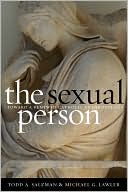
In the interest of fair minded dialogue let’s see what Lawler and Salzman propose. First they complain that recent actions of the USCCB ignore “an essential distinction between catechesis (as in catechism) and the academic discipline of theology.” We do distinguish between a catechist and a theologian. The catechist faithfully “passes on the deposit of the faith” while the theologian speculates and philosophizes. Is this not a valid distinction? Should we not treat theologians in a different category? Clearly there is a measure of truth here but it could lead to a number of unfair distortions. Are we to conclude that the theologian who happens to believe her speculations and philosophizing about truth lead her to defend the deposit of faith, is really catechizing and that only those theologians who are “unsafe dissenters” are true theologians? Lawler and Salzman imply that anyone who agrees with the Vatican holds “a single, Roman theology and serve as methodological and theological apologists for the magisterium.” In other words they are not thinking people but mere instruments of Vatican propaganda.
Secondly, Lawler and Salzman describe what they call the charism of the theologian. A curious irony exists here since our entire understanding of what a Catholic theologian is comes from the sacred Tradition and the magisterium of the Church. They note, “Theology uses scholarly principles not only to communicate the truths of faith but also to explore the meanings of those truths and contemporary ways of articulating them.” Fair enough, but unless you accept the myth of modernist progress, being contemporary and exploring does not make you necessarily an “unsafe dissenter.”
Lawler and Salzman move on to quote the famous Jesuit theologian, Francis A. Sullivan, S.J., who they point out explains that being a theologian involves a two-way mediation is “from the faith, culture and questionings of the people toward the magisterium; and from the pronouncements of the magisterium back to the people.” I don ‘t have a problem with this notion as it is described by Sullivan in his work Magisterium which, by the way is based on reflections on the thesis of the International Theological Commission. Lawler and Salzman take this in new direction by suggesting that the Vatican must include “unsafe dissenters” in its theological consultations before making magisterial pronouncements. At one level it makes sense to consider how various peoples have interpreted a theological problem. No doubt Lawler and Salzman are correct in their view that excluding “unsafe dissenters” from the consultation “creates polarization between itself and both the faithful who disagree with the doctrinal pronouncements and the theologians who articulate this disagreement.” I think that Lawler and Salzman are blowing smoke when they imply that the majority of the faithful disagree with the Vatican and wish that the Vatican would change its doctrine to agree with that of the dissenters. Let’s be clear I have no problem with dialoguing with Lawler and Salzman, but there apparent assumption a thinking person would agree only with their views and that anyone who agrees with a traditional view is a mere apologist for the magisterium is clearly false thinking.
The truth many lie in the adjectives here. I truly do admire the theologian Karl Barth, but since he is a famous Protestant theologian it would be silly to look to him as a Catholic theologian. My question is how far outside the norms of Catholic tradition can a theologian go before they lose the right to hold the adjective “Catholic?” Todd A. Salzman currently is a professor of Catholic theology at Creighton University. Can he teach anything he wants and still be a professor of Catholic theology at a Catholic University? In my view it is a sad day if the answer is “yes.”

No comments:
Post a Comment